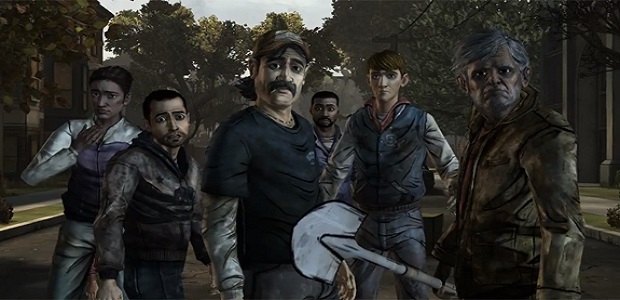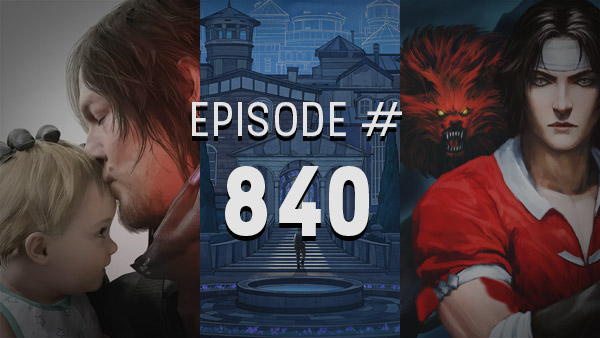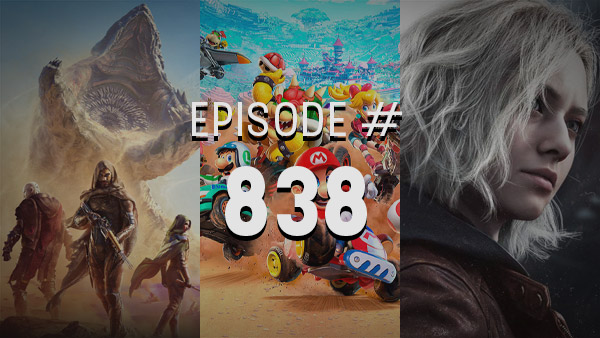Your login information returned multiple users. Please select the user you would like to log in as and re-type in your password.

This question seems to have come up quite a bit recently within the community. It's been said that books, TV shows, or movies have better stories than video games and some have said story has no place within gaming at all. Well, I would have some very harsh words for those people, but I'm gonna be nice and explain why I feel story is a very important aspect of gaming. There is little doubt that books, shows, or movies have far better narratives than video games, but that is no reason to discredit them altogether. Stories presented in video games can provide a very unique experience those other forms of media could never replicate.
As I have said in previous articles, it isn't easy writing characters and a comprehensive narrative into the structure that is a video game. Even the most linear of games will have that one, always unpredictable variable: the player. After all, the player could be someone who stays within boundaries and just goes along for the ride...or they could be someone that jumps around during dialogue and attacks every NPC in sight simply to see if they can. There's also the fact the story and characters have to be limited by the technical aspects of the game and even just the fact a player's ability to interact with each environment is rather limited. Even with the limitations; however, there is one thing that will always make game stories stand out.
You see, when reading a book or watching a movie, the viewer is, well, just that. They are a completely separate entity that has no interaction with the world or anything that inhabits it. A video game, on the other hand, grabs the viewer and shoves them into the shoes of the main character. Suddenly, they are no longer a bystander, but an active participant within the story and the world. With that interactivity, comes a sort of attachment to the environment and the other characters. It's one thing to read about a group of adventurers slaying a dragon, and it's something else entirely to, in a sense, actually take part in that epic battle. That's the draw to video games; instead of just watching everything happen, you are actually experiencing it.

Let's use an example: Telltale's The Walking Dead. This game is probably on the forefront of most minds when this topic is brought up. Everyone heralded it as one of the best video game stories ever told and that's because of the way it was presented. Would this game work well as a TV series or movie? Sure, but I would argue the impact wouldn't be the same for the reasons I listed above. Telltale's TWD presents the player with several choices; some of which are pretty difficult to just make an immediate decision on. That difficulty stems from the fact we have imposed our own mindsets and morals onto Lee Everett. When making a decision, no one thought, “Now, what would Lee do in this situation?” even thought he had an established personality and set of morals. This is, again, something solely unique to video games.
Instead of just watching Lee make a decision, we make the decision for him and, by extension, we experience any consequences that come as a result. Instead of Lee making a bad decision and just watching him suffer, we suffer alongside him. When Lee succeeds, we feel a part of that success because of the role we played in making those outcomes happen. As just bystanders, would Telltale's game have that same emotional impact that rewarded it the nickname “The Walking Feels”? Those million voices crying out once TWD was over did so because they felt like they had struggled alongside Lee to keep a rag-tag group of survivors together while protecting Clementine. You could apply this same thought process to any game with decisions, dialogue trees, or even just well written characters.
Video games offer a unique facet of story telling by providing a degree of interactivity we could never experience anywhere else. It goes beyond just playing Skyrim and saying, “Oh cool, a Medieval Fantasy world. Lemme spawn in a million cheese wheels and see what happens”. Video games let you actually experience and take part in the universes and genres we have grown up just watching or reading. That is why video game stories are so important. It doesn't matter how much “better” or “worse” a particular medium tells a story, but how invested we become in it. By placing the player into the world, video games achieve a degree of immersion that ensures these narratives remain unique.




Comments
12 years, 1 month ago
I cannot agree more with you. Actively participating in a story is much more engaging than watching or reading it. It's a shame more games don't utilize well written storylines.
12 years, 1 month ago
I find it interesting how you brought up at the very beginning how people generally concede that game stories do not live up to the stories in other forms of media. I kind of disagree, though, with this kind of statement because when you are simply looking at the "average" film plot or the plot of your 'everyday not fantastic but not horrible' novels, you really do not see a large difference in quality. It's really only at the extremes where video games seem to fall short and that seems to be due to the recency of the birth of this form of media more than anything. Sooo I would argue that in addition to being a way of experiencing a story, games certainly have the potential of having stories that are equally as well done as any novel or film.
12 years, 1 month ago
You make an article about video game story and you didn't include Planescape Torment or Deus Ex. For shame.
12 years, 1 month ago
Ive recently started playing Mass Effect with a friend. They aren't good at video games, so I've got the controller, and they're making the dialogue decisions.
-minor spoilers-
We played through the Overlord DLC in ME2 and of course had a fun time with it...later when we got to Grissom Academy in ME3, we stumbled across David who we rescued from the previous game. All he had to say was his signature "The square root of 906.01 equals..." .....now, my friend is a bit slow on the uptake. I often need to explain things again for him or he needs a moment to re-read the subtitles to catch what was being said. However he is attentive and very appreciative of the story...and when that line was dropped, he audibly gasped, immediately.
Project Overlord had stunning visuals, a fun vehicle to drive around in, lava hopping, a research station turned into a haunted house by a mad AI, a huge satellite dish collapsing into itself in spectacular fashion...and yet the one thing that stuck with him the most, was the small emotional arc told in the last 10 minutes of the game.
Storytelling is a powerful tool, one that will outlast graphics and gameplay more than anything else.
12 years, 1 month ago
My main issue is that too many developers seem to try and make a great story (which is wonderful) but provide mediocre gameplay. I personally can't enjoy a story if in order to get through the game I have to suffer through poor game design and mechanics. It could be a great story but it no longer is worth it if the game sucks, it might as well have been a movie. I feel the games that have the most potential to intertwine game design and story together the best are point and click adventure games. That does not mean that other games can't do it either. I just haven't seen it personally quite yet. Stories I thought that were great that connected well with the gameplay have been: The Walking Dead, Alpha Protocol and Ace Combat 5 (although that is for slightly different reasons).